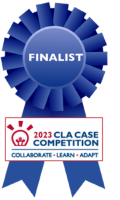Locally Led Developmental Evaluation Improves CLA Practices

Ethiopia’s resilience capacity and the adaptability of its development and humanitarian partners have been heavily tested by conflicts, mass displacement, disease outbreaks, pest infestation, flooding, and drought. In 2020, USAID/Ethiopia embarked on an ambitious, integrated effort to strengthen the capacity of communities and institutions to effectively manage disaster risks: the Strengthening Disaster Risk Management - Systems and Institutions (SDRM-SI) Project. Due to the complex and ever-shifting operating context in Ethiopia, as well as the challenges of cross-portfolio integration, the SDRM-SI team contracted Headlight Consulting Services, LLC (Headlight) to implement a Developmental Evaluation (DE) to support evidence-driven implementation and adaptation of the Disaster Risk Management (DRM) portfolio.
DE is a utilization-focused evaluation approach to continuously adapt interventions using evaluative thinking and rapid feedback loops. Previously, DE has helped answer USAID/Ethiopia’s complex DRM learning questions, on topics ranging from the use of flexible funding via crisis modifiers, to how adding a task force affected coordination and mitigated negative results in the 2021 Afar Flood response. Answers to these learning questions have helped refine USAID/Ethiopia’s DRM approach at the strategy, activity, and operational levels. At present, the DE team maintains a technical evidence base they created; generates learning and evidence products to answer the SDRM-SI Project team’s prioritized learning questions; and facilitates adaptive action workshops, with both the SDRM-SI Project team and implementing partners (IPs) in the DRM and Resilience space. The aim of these efforts is to enable evidence uptake and data-driven adaptive management. As a result of the adaptive action planning workshops, and continued support by the DE team, IPs and the SDRM-SI Project team have made evidence-driven adaptations, such as improving outcome-level reporting in Activities and using evidence to inform new Activity design. This case study presents practical examples of how DE can effectively operationalize the learning and adapting components of CLA.



